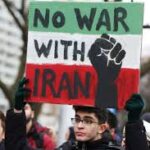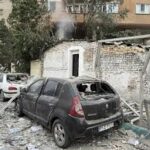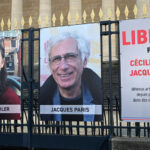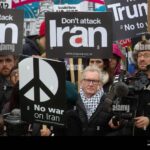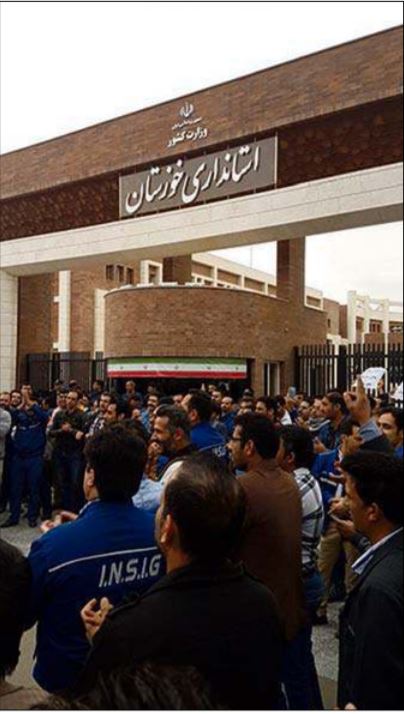
Widespread discontent continues to be a feature of everyday life in Iran. JANE GREEN reports on recent developments
THE silence of the international media on the developing situation in the Islamic Republic of Iran is a growing issue as the clampdown on opposition within the country continues. In recent days Iranian authorities have arrested 10 employees of the steel works at Ahvaz in the oil-producing province of Khuzestan. The arrests follow protests by employees of the National Steel Industrial Group who have in recent days been demanding the payment of unpaid wages.
The workers, who have not been paid for the past three months, hold the former owner of the industrial complex, the National Bank of Iran, responsible for the crisis. Protesters have also called for the dismissal of the current owner of the complex, Iranian tycoon Abdolreza Mousavi, and the resignation of regional Governor-General Gholamreza Shariati.
The steel complex is symptomatic of the corruption at the heart of the Iranian system, which led to thousands taking to the streets in protest earlier in the year. Ahvaz National Steel Industrial Group was established in 1967 during the dictatorship of the Shah and has recently
witnessed widespread protests over wage arrears among its nearly 4,000-strong workforce. The steel complex was privatised after the Islamic Revolution in 1979 and was later sold to Amir Mansour Aria, who was executed in 2011 on charges of embezzling nearly $1 billion.
The company was then transferred by the court to the National Bank of Iran and, in October 2017, the bank sold the complex to Mousavi.
Among his other interests, Mousavi owns a major football club in Ahvaz, two hotels on Kish Island in the Persian Gulf, and is the managing director of Zargos Airlines. Several workers have been arrested by the factory’s security organisation for demanding back pay.
Employees are in debt because they have no other source of income. Some have had their accounts closed by their banks for failure to pay
service fees. Most are without health insurance, as the company has stopped paying their premiums. The situation in Ahvaz is mirrored by action elsewhere in Iran as widespread discontent continues to be a feature of everyday life in the country. Construction workers in the
north-western city of Urmia who have not been paid in the last year held a protest recently. Last month steel mill workers in Urmia held a rally in front of the governor-general’s office demanding delayed wages. Scores of retired employees of Central Alborz Coal in the northern Mazandaran province protested in the city of Zeerab last month to demand their overdue pensions. Labour protests have also been reported in the cities of Shahr-e Kord and Gachsaran.
The Union of Metalworkers and Mechanics of Iran (UMMI) has issued a statement condemning recent arrests stating:
“During the past few days, we have witnessed the plundering by the government of workers’ savings in the social security fund, while Osman
Esmaili, a painter and decorator, Mohammad Habibi, a teacher and member of the executive board of Tehran Teachers’ Association and
10 protesting workers of the National Iranian Steel Industrial Company in Ahvaz city were unlawfully and violently arrested.”
The statement goes on to point out that the arrests contravene Article 27 of the Iranian constitution which allows for participation in protests, strikes and rallies. The response of the Iranian authorities, however, has typically been one of denial, with the Supreme Leader of the Islamic Republic, Ayatollah Ali Khamenei, accusing “foreign enemies” of stoking discord among Iranian workers. The reality remains, however, as the protests which consumed the country in January this year showed, that the consequences of the economic mismanagement
and corruption perpetrated by the current regime are beginning to hit home. The reach of “foreign enemies” would have to be extensive
in order to co-ordinate the range of protests which have swept across the country in recent weeks. The regime’s claims have, in
the past, been a tried and tested way of unifying the country against the threat of external interference. However, the reality of life for most ordinary Iranians is such that the rhetoric of the theocratic leadership appears increasingly jaded and out of touch with their experience.
The mainstream international media have failed to reflect the momentum of ongoing protest since the actions which were widely reported
in January of this year. The day-to-day struggles of Iranian workers may not be deemed to be the stuff of headlines but they are a barometer
of the changing mood inside the country. The inability of Iranian President Hassan Rouhani to deliver upon his rhetoric of reform will
add further to the desire for change. The threat of external interference, from either the United States or Israel, remains a real
one, adding to the sense of insecurity and uncertainty for ordinary Iranians. Imprisoning workers for demanding their wages and
protesting for being unpaid will not endear the regime or its corrupt industrial cronies to the Iranian people. The pressure for change in
Iran continues to grow. The question now is not if, but when?
■ Jane Green is national organiser of the Committee for the Defence of the Iranian People’s Rights.







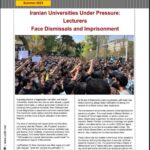
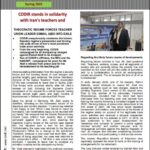




 Posted in
Posted in 
